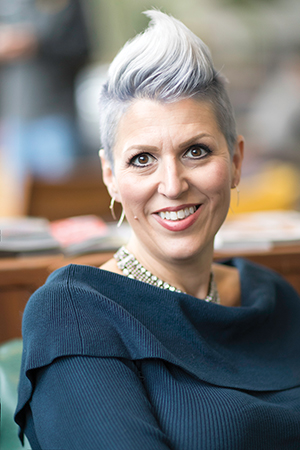Mesothelioma Survivor
Becoming a Beacon of Hope
 As a 36-year-old new mother, Heather Von St. James thought fatigue after giving birth was normal. The day she passed out after bringing laundry up from the basement was a turning point. She was concerned something was terribly wrong and sought help. Diagnosed with Stage IIB pleural mesothelioma, she spent the first year of her daughter’s life fighting for her own. Relying on her family and her faith, she was determined to live longer than the 15-month prognosis she received.
As a 36-year-old new mother, Heather Von St. James thought fatigue after giving birth was normal. The day she passed out after bringing laundry up from the basement was a turning point. She was concerned something was terribly wrong and sought help. Diagnosed with Stage IIB pleural mesothelioma, she spent the first year of her daughter’s life fighting for her own. Relying on her family and her faith, she was determined to live longer than the 15-month prognosis she received.
After giving birth to my daughter in August 2005, I became anemic, but the doctors attributed that to the C-section. They gave me iron pills and allowed me to go home. After a while, the iron pills didn’t seem to help, and I felt even more tired. I chalked it up to post-partum fatigue until I started losing weight fast, five pounds a week. By October, I felt like I had a truck parked on my chest. I also had a dry cough and a fever that would spike at the same time every day.
The turning point came a few days later when I went to our basement to do the laundry. On the way back up, I started gasping for air. I struggled to breathe as I climbed the stairs. Once I made it, I passed out. An hour later, I woke to see my baby, Lily, alone in her swing, cooing at me. I called my family doctor right away.
Bloodwork results showed I was severely anemic. A chest X-ray revealed fluid around my left lung. I was sent to the hospital for a thoracentesis to drain the fluid. As the doctor removed a liter of fluid through my back, he made an odd noise. He remarked that the fluid is normally straw colored, but mine looked like iced tea. He sent it to pathology. I automatically thought “cancer” because I didn’t associate “pathology” with anything else. Everything that was happening felt surreal. I was confused and freaked out.
I was sent for a CT. Why is it that so many hospitals put their CT machines in the basement of the hospital at the end of long, dark hallways? I was sent to this little, dark, cold room with a couch, a chair and one small fluorescent light that buzzed. The mood of the room screamed, “You have cancer!”
The CT showed a mass on my lower left lung, but pathology results would confirm if it was a tumor or blood clot, and it took another week to get diagnosed with malignant pleural mesothelioma. My reaction was, “What is it, and how do we get rid of it?” My husband had seen it on TV commercials, and he knew it was bad.
The doctor said I had 15 months to live and to get my things in order. He thought having chemotherapy and radiation therapy could give me up to five more years. I wanted more. He also suggested an invasive surgery that could get me up to 10 years, but I’d have to go to Boston. My husband looked at me, alarmed at the possibility he may become a single father. Then he looked at the doctor and said, “Get us to Boston!”
The specialist in Boston insisted on conducting tests using his own protocols to confirm the diagnosis. I tested positive for mesothelioma, and he thought I was a good candidate for the surgery.
The extrapleural pneumonectomy removed my left lung, left diaphragm and pericardium (membrane around the heart). Then I had hyperthermic intraoperative chemotherapy where 140°F chemotherapy was poured into my chest cavity and sloshed around to cover the remaining organs and tissues, then pumped out. It was a nine-hour procedure. Months later, I started chemotherapy and radiation therapy, and I finished almost a year to the date after I was diagnosed.
Even though I survived a year of fighting cancer, my life would never be the same. Before the diagnosis, I worked at a hair salon, but I had no job to return to. I felt so empty, and I just cried. Eventually, I picked myself up and decided to volunteer so others going through mesothelioma wouldn’t feel as alone as I had. I now volunteer with The Mesothelioma Applied Research Foundation and Friend for Life Cancer Support Network. I also work to raise awareness about the dangers of asbestos because I was exposed to it through my dad’s clothes.
I was diagnosed in the dark ages of mesothelioma. Today, many people are living with mesothelioma, and there is hope. Mesothelioma research is expanding and more specialist centers are opening up. Anyone diagnosed with it should find a specialist with mesothelioma experience. Expect to travel because not all surgeons or oncologists are trained to handle it. Finding a mesothelioma specialist could make the difference between life and death.
I can either be a victim or a victor. I claimed victory and have no evidence of disease. Now I want to be a beacon of light for others who feel lost because of a mesothelioma diagnosis.


